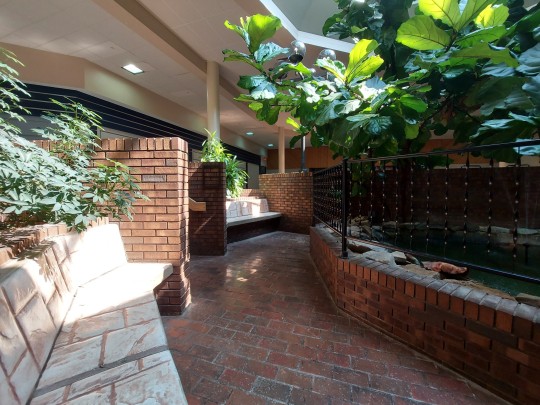#Exploration
Explore tagged Tumblr posts
Text

76 notes
·
View notes
Text
she do an adventure

#happy caterday ฅ^•ﻌ•^ฅ#cat photos#cat pictures#cat people#cat paws#kitty#cats#cute kitty#cats of tumblr#cute cats#cute animals#cute cute cute#cute core#pets#garden#fluffy#kitty cat#fuzzy#fluff#cute#happy caturday#adventure#adventure time#exploration
28 notes
·
View notes
Text










William Healey Dall – Scientist of the Day
William Healey Dall, an American naturalist and explorer, died Mar. 27, 1927, at the age of 81.
Read More
#William Healey Dall#exploration#mollusks#histsci#histSTM#19th century#history of science#Ashworth#Scientist of the Day
25 notes
·
View notes
Link
In the new issue of our sister publication, The Atavist Magazine, Allegra Rosenberg writes about a doomed expedition to Antarctica—and the untold love story of two crew members who survived the journey.
"Pennell left a trove of letters and diaries behind, but they sat largely unconsulted for a century. The romance hidden inside them was a gift waiting for the right moment to be discovered."
Read the introduction, “The Romance History Forgot,” on Longreads.
#longreads#storytelling#nonfiction#journalism#history#love#romance#antarctica#exploration#adventure#journey#ship#voyage#south pole
1K notes
·
View notes
Text

#What to do if Your Arctic Expedition Doesn’t go as Planned#tips#tricks#life hacks#helpful hints#advice#exploration#the Arctic
4K notes
·
View notes
Text









#naturecore#aesthetic#forest life#forestcore#architecture#vintage#sculpture#statues#plantcore#vines#travel#exploration#explore#nature#academia aesthetic#garden statues#plants#forest sculptures#scenery#garden aesthetic#photography#stone#old architecture#ruins#old buildings#green nature#vintage aesthetic#moodboard#gardencore#garden
2K notes
·
View notes
Text

#180-600#180-600mm#telezoom#tele#nikkor z#nikkor#explore#exploration#curious#curiousity#adventure#adventuring#quest#documentary#snapshot#spontaneous#hike#hiking#trek#trekking#outdoors#live free#nature#natural#outdoor#nature photography#nature photographer#nikon#nikon photographer#nikon photography
770 notes
·
View notes
Text
ALT: This video shows blades of grass moving in the wind on a beautiful day at NASA’s Michoud Assembly Facility in New Orleans. In the background, we see the 212-foot-core stage for the powerful SLS (Space Launch System) rocket used for Artemis I. The camera ascends, revealing the core stage next to a shimmering body of water as technicians lead it towards NASA’s Pegasus barge. Credit: NASA
The SLS (Space Launch System) Core Stage by Numbers
Technicians with NASA and SLS core stage lead contractor Boeing, along with RS-25 engines lead contractor Aerojet Rocketdyne, an L3Harris Technologies company, are nearing a major milestone for the Artemis II mission. The SLS (Space Launch System) rocket’s core stage for Artemis II is fully assembled and will soon be shipped via barge from NASA’s Michoud Assembly Facility in New Orleans to the agency’s Kennedy Space Center in Florida. Once there, it will be prepped for stacking and launch activities.
Get to know the core stage – by the numbers.

Standing 212 feet tall and measuring 27.6 feet in diameter, the SLS core stage is the largest rocket stage NASA has ever built. Due to its size, the hardware must be shipped aboard NASA’s Pegasus barge.

900 miles
Once loaded, the barge – which was updated to accommodate the giant core stage -- will travel 900 miles to Florida across inland and ocean waterways. Once at Kennedy, teams with our Exploration Ground Systems team will complete checkouts for the core stage prior to stacking preparations.

18 Miles + 500 Sensors
As impressive as the core stage is on the outside, it’s also incredible on the inside. The “brains” of the rocket consist of three flight computers and special avionics systems that tell the rocket what to do. This is linked to 18 miles of cabling and more than 500 sensors and systems to help feed fuel and steer the four RS-25 engines.

8.8 million
Speaking of engines… Our SLS Moon rocket generates approximately 8.8 million pounds of thrust at launch. Two million pounds come from the four powerful RS-25 engines at the base of the core stage, while each of the two solid rocket boosters produces a maximum thrust of 3.6 million pounds. Together, the engines and boosters will help launch a crew of four Artemis astronauts inside NASA’s Orion spacecraft beyond Earth orbit to venture around the Moon.

733,000 Gallons
Achieving the powerful thrust required at launch calls for a large amount of fuel - 733,000 gallons, to be precise. The stage has two huge propellant tanks that hold the super-cooled liquid hydrogen and liquid oxygen that make the rocket “go.” A new liquid hydrogen storage sphere has recently been built at Kennedy, which can store 1.25 million gallons of liquid hydrogen.

Four
The number four doesn’t just apply to the RS-25 engines. It’s also the number of astronauts who will fly inside our Orion spacecraft atop our SLS rocket for the first crewed Artemis mission. When NASA astronauts Reid Wiseman, Christina Koch, and Victor Glover along with CSA astronaut Jeremy Hansen launch, they will be the first astronauts returning to the Moon in more than 50 years.
Make sure to follow us on Tumblr for your regular dose of space!
962 notes
·
View notes
Text



Endurance in a new 3d scan by the Falkland Maritime Heritage Trust
384 notes
·
View notes
Text

Matthew Henson was born in Charles County, Maryland in 1866 to freeborn sharecroppers. Both of his parents passed away before he reached the age of ten. Matthew eventually made his way to Baltimore where he found work as a cabin boy on a merchant ship named the Katie Hines.
Read more: https://unwritten-record.blogs.archives.gov/2025/01/21/spotlight-matthew-henson-explorer/
303 notes
·
View notes
Text

497 notes
·
View notes
Text






Ladies and gentlemen, please offer your undivided attention to the one true mall plant. All other mall plants bow to its glory. I invite you to sit in the conversation pit and take in the view 🖤
It has a plaque, but I guess someone stole it. What did you used to say, king?
#cranberry mall#photography#retail#dead mall#dead malls#deadmall#mall#malls#shopping mall#shopping malls#retail apocalypse#dead mall series#exploration#explore#rust belt#rural america#rural#pittsburgh#pennsylvania#forgotten places#time capsule#70s#70s aesthetic#aesthetic
429 notes
·
View notes
Text



Adventure: The Subtle Art of Dragon Hunting
Art 1 Art 2 Art 3
After a lowland kingdom is ravaged by a dragon looking to expand its territory the party sets out on a quest worthy of the heroes of old... only to discover that the epic songs recounting the deeds of those old heroes chose to leave out just how much hiking would be involved in such an epic undertaking.
Tracing witness accounts and the path of destruction leads our would be dragonslayers to the Bronscall Mountains, a rugged wilderness of deep valleys and icy peaks, but the trail goes cold before they have any clue to where their quarry might be lairing. This is the sort of adventure where the party needs to take their time, and is best brought to life using an exploration system such as the one I've developed here, or hexcrawling if you'd prefer.
The idea is to have the party fully experiance the Bronscall mountains before facing the dragon: living off the land, learning its secrets, discovering resources they might use or potential ambush sites.
Zones of interest:
The Podrian Foodhills: Groves of flowers and tangled trees that seem intent on capturing any wayward traveller. The region also features a potential base camp for the party in the form of a ruined watchtower, sturdy and fortified, it may become their home away from home before too long.
Lake Whitedog: cold all year from glacial melt, the waters of this lake hold a long sunken secret, and provide great fishing. Perhaps while exploring the party can trace the mystery of the deserted mining village built nearby.
Bron's Stair: An increasingly challenging climb up the foothills of the mountains, home to many monsters and chilling wind. The area is also home to a crotchety old hunter who can teach them the finer points of surviving the cold as they ascend.
The Frigid Peaks: Windstorms, avalanches, occasional aerial attacks by the dragon as they near its territory. It's dangerous to stay more than a few hours in this region, but the beast's lair must be around here somewhere.
The Burning Rift: accessible only from the height of the peaks (or a hidden shortcut through the hotsprings lower down the mountain), these volcanic caverns are rife with volatile elementals and the threat of collapse, but may provide a means of sneaking up on the dragon without the risk of being attacked from the air.
156 notes
·
View notes
Text

I love black cats, so they're great for style practice and exploration~
Which one is your favorite?
Like, comment, share, and follow for more!
NOW AVAILABLE AS KEYCHAINS ON MY ETSY!
#cats#kawaii#cute#wolfbeestudio#cat#commissions#chibi art#black cats#black cat#caturday#cute cats#kitty cat#cat lovers#kittens#original art#exploration#drawing practice#every little detail makes a difference in the design
1K notes
·
View notes
Text

367 notes
·
View notes